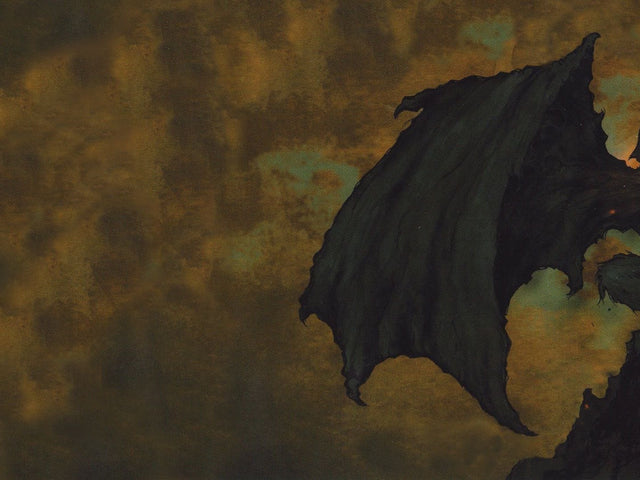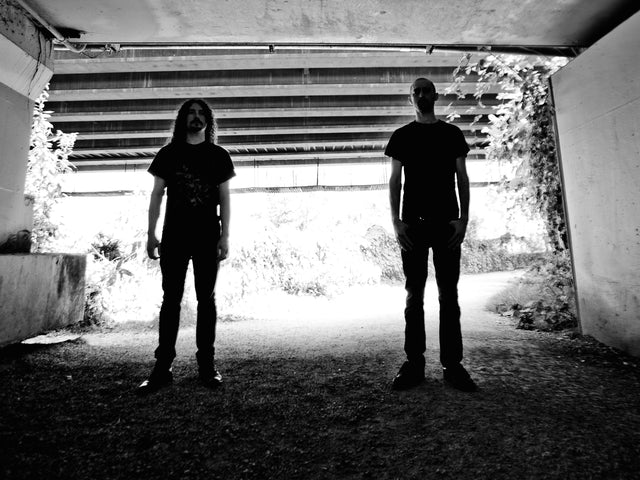Deaf Forever is our monthly metal column, where we review the best in doom, black, speed, and every other metal type under the sun.

Judas Priest: Firepower (Columbia)
Just a month before metal legends Judas Priest’s Firepower came out, guitarist Glenn Tipton announced he was stepping back from touring due to Parkinson’s. Classic metal acts that made a name out of perceived immortality have had to reckon with the costs of being human as they’re pushing retirement age in a field that still demands youthful vigor. Even if bound by laws of flesh, Firepower proves they’ve still got bangers to rock them to the dawn. It’s slightly leaner than Redeemer of Souls, and they sound that much more energized for it. Tipton and Richie Faulkner are more comfortable with each other, blasting speed like Defenders of the Faith just left the plant. “Firepower” and “Lightning Strikes” is as good of a one-two punch as anything Priest’s ever released, and both are their most electrifying post-reunion cuts. Rob Halford isn’t pushing himself to Painkiller heights, but he doesn’t need to, sounding vigorous even if he does start “Evil Never Dies” by referencing “The Devil Went Down to Georgia.” Modern Priest records look to the past to some degree — they helped invent metal, they can rip themselves off if they want — yet Firepower references eras the band hasn’t revisited for some time. “Never the Heroes” opens with Turbo-esque synths, and its slower, more anthemic pace recalls that album’s commercial flirtations too. Closer “Sea of Red” takes from their pre-leather days on Sin After Sin, particularly “Last Rose of Summer,” one of their most underrated tracks. Even the soloing has a more looser 70s feel, one that recalls Tipton and his retired partner K.K. Downing finding their way. That badass zebra print suit you were gonna blast those punks to Mars to may not have a fit for a long time; Firepower is the zebra print suit that’s still inside your metal heart. (By the way, if you don’t follow Halford on Instagram, you need to correct that NOW. Who know the Metal God was our adorable Metal Uncle?)

GosT: Possessor (Blood Music)
An electronic act? In this column and not our electronic one? You clearly haven’t heard GosT. GosT loves the 80s, and his 80s are about Satanic Panics, carving pentagrams on any and all matter, and crushing High Lifes to King Diamond and Venom in the Target parking lot, thee ultimate of rituals. GosT has always been the most outwardly metal synthwave act, and his third record Possessor puts him closer to the metal spectrum. He cranks up the percussion, emulating death metal blasting on “Garruth” and grindcore in the middle of “Legion.” “Beliar” resembles a symphonic black metal song stripped only to drums and blown-out synth choirs. If Aphex Twin’s “Didgeridoo” was designed to wear out dancers, Possessor serves to punish heshers who think they can ironically boogie. It has more crushing bass and less melody, though “Shiloh's Lament” transcribes Gothenburg melody, a sappy one that Gates of Ishtar or Edge of Sanity would use, into synth. That it’s a rare moment of beauty makes it more powerful. Does Possessorsuggest an entirely electronic metal future? Not quite — synthwave conjures a past that never really existed, and it’s impossible to entirely purge metal of Marshalls and Jacksons. It’s a metal record in attitude and aggression, an integration of metal aesthetics into a new heart. And if you ever get the chance to see GosT live, he will put your all your denim and leather faves to shame.

Grave Upheaval: Untitled (Nuclear War Now!)
Australia’s Grave Upheaval, like Portal and Impetuous Ritual (both of whom they’re affiliated with), straddle the line between death metal and anti-music, taking the cavernous sound pioneered by Incantation to its deepest and rawest limits. Submerged so low, the guitars become formless, breaking free from death metal’s strict compositional focus. Were they New Yorkers who are friends with Thurston Moore and not Australian maniacs, they would be the toast of the avant-garde community and would have at least one feature in Wire under their belt. Grave Upheaval’s second album, untitled like their first, moves an inch towards the surface, a smidge brighter and still uncompromising. Riffs have shapes and aren’t just subterranean waves, though they’re barely any more discernible. Their low rumbles are still the core of the sound, yet they sound even more untethered from everything else. It’s not chaos for the sake of chaos, it’s elements moving freely without concern for each other yet coinciding into something cohesive. Grave Upheaval are committed to death metal, and also committed to breaking free from it, arriving at something more elemental here. The separations between tracks are a mere formality, and there’s a reason language is so minimal in their presentation.

Eagle Twin: The Thundering Herd (Southern Lord)
While this doesn’t come out until the end of the week, we’ll sell you on it now, and frankly, Eagle Twin is a band you needed to know about closer to the beginning of the decade. We’re not gonna shame you for being late, though, and they certainly laid low for a while. The Salt Lake City doom duo, led by Gentry Densley, formerly of hardcore experimentalists Iceburn, skews doom in subtly skronky directions, and their third record The Thundering Herd is towering and twisting. Opener “Quanah Un Rama” has no shortage of pummeling riffs, yet it’s when they start to crumble and decompose towards the end that the song really gets interesting. The low end still has that lizard-brain hesher appeal while being abstracted at the same time. Gentry sounds especially nasty on “Heavy Hoof,” and that’s equally applicable whether you’re talking about his playing or his vocals, shamanic and full of phlegm. “Hoof” takes Earthless’ jam tendencies and transforms them into a carefully controlled burn. Herd is brisker than you’d expect, owing to Densley’s subversion of doom monoliths with spikes and turns. The six years it took to get it released feel agonizing in comparison.

Nostalgist: Disaffection (Nostalgum Directive)
Don’t act like you’re too good for the Smashing Pumpkins. Say what you will about Billy Corgan now — the less said, the better — he knew how to dial in gargantuan crunch at one point. Seattle’s Nostalgist specialize in shoegaze with a particular emphasis on the Pumpkins’ heavier moments, which their leader, guitarist and vocalist Asa Eisenhardt, continues on their second album Disaffection. For this record, he’s joined by metal drummer extraordinaire Aesop Dekker, also of VHÖL, Extremity, and Worm Ouroboros. Shoegaze, even the more metal varieties, sometimes needs more thrust, and Eisenhardt and Dekker prove themselves apt at throwing weight on opener “Pendulums.” Metal fury and big rushing choruses come together as a wonderful fusion of might and light. “Present Tense” injects the lush rock with prime gothic metal angst and sounds like Slowdive consoling a just-dumped Peter Steele. Disaffection concludes with a cover of Catherine Wheel’s “Texture,” faithful to the original and more direct, bolstered by Eisenhardt’s overdrive. If you’ve been in a rut with shoegaze, metalgaze, whatever, this’ll clear that blockage.
Andy O’Connor heads SPIN’s monthly metal column, Blast Rites, and also has bylines in Pitchfork, Vice, Decibel, Texas Monthly and Bandcamp Daily, among others. He lives in Austin, Texas.
Related Articles
Join the Club!
Join Now, Starting at $44
Exclusive 15% Off for Teachers, Students, Military members, Healthcare professionals & First Responders - Get Verified!











